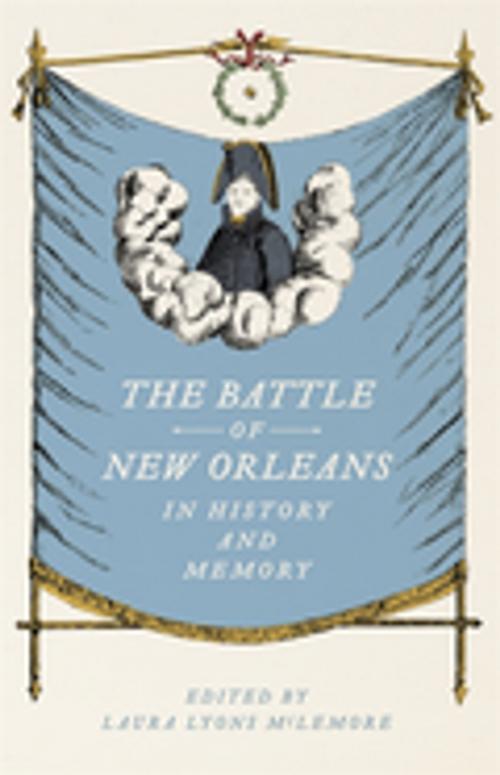The Battle of New Orleans in History and Memory
Nonfiction, History, Military, Social & Cultural Studies, Social Science| Author: | ISBN: | 9780807164679 | |
| Publisher: | LSU Press | Publication: | November 14, 2016 |
| Imprint: | LSU Press | Language: | English |
| Author: | |
| ISBN: | 9780807164679 |
| Publisher: | LSU Press |
| Publication: | November 14, 2016 |
| Imprint: | LSU Press |
| Language: | English |
The Battle of New Orleans proved a critical victory for the United States, a young nation defending its nascent borders, but over the past two hundred years, myths have obscured the facts about the conflict. In The Battle of New Orleans in History and Memory, distinguished experts in military, social, art, and music history sift the real from the remembered, illuminating the battle’s lasting significance across multiple disciplines.
Laura Lyons McLemore sets the stage by reviewing the origins of the War of 1812, followed by essays that explore how history and memory intermingle. Donald R. Hickey examines leading myths found in the collective memory—some, embellishments originating with actual participants, and others invented out of whole cloth. Other essayists focus on specific figures: Mark R. Cheathem explores how Andrew Jackson’s sensational reputation derived from contemporary anecdotes and was perpetuated by respected historians, and Leslie Gregory Gruesbeck considers the role visual imagery played in popular perception and public memory of battle hero Jackson.
Other contributors unpack the broad social and historical significance of the battle, from Gene Allen Smith’s analysis of black participation in the War of 1812 and the subsequent worsening of American racial relations, to Blake Dunnavent’s examination of leadership lessons from the war that can benefit the U.S. military today. Paul Gelpi makes the case that the Creole Battalion d’Orleans became protectors of American liberty in the course of defending New Orleans from the British. Examining the European context, Alexander Mikaberidze shows that America’s second conflict with Britain was more complex than many realize or remember. Joseph F. Stoltz III illustrates how commemorations of the battle, from memorials to schoolbooks, were employed over the years to promote various civic and social goals. Finally, Tracey E. W. Laird analyzes variations of the tune “The Battle of New Orleans,” revealing how it has come to epitomize the battle in the collective memory.
The Battle of New Orleans proved a critical victory for the United States, a young nation defending its nascent borders, but over the past two hundred years, myths have obscured the facts about the conflict. In The Battle of New Orleans in History and Memory, distinguished experts in military, social, art, and music history sift the real from the remembered, illuminating the battle’s lasting significance across multiple disciplines.
Laura Lyons McLemore sets the stage by reviewing the origins of the War of 1812, followed by essays that explore how history and memory intermingle. Donald R. Hickey examines leading myths found in the collective memory—some, embellishments originating with actual participants, and others invented out of whole cloth. Other essayists focus on specific figures: Mark R. Cheathem explores how Andrew Jackson’s sensational reputation derived from contemporary anecdotes and was perpetuated by respected historians, and Leslie Gregory Gruesbeck considers the role visual imagery played in popular perception and public memory of battle hero Jackson.
Other contributors unpack the broad social and historical significance of the battle, from Gene Allen Smith’s analysis of black participation in the War of 1812 and the subsequent worsening of American racial relations, to Blake Dunnavent’s examination of leadership lessons from the war that can benefit the U.S. military today. Paul Gelpi makes the case that the Creole Battalion d’Orleans became protectors of American liberty in the course of defending New Orleans from the British. Examining the European context, Alexander Mikaberidze shows that America’s second conflict with Britain was more complex than many realize or remember. Joseph F. Stoltz III illustrates how commemorations of the battle, from memorials to schoolbooks, were employed over the years to promote various civic and social goals. Finally, Tracey E. W. Laird analyzes variations of the tune “The Battle of New Orleans,” revealing how it has come to epitomize the battle in the collective memory.















